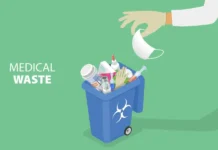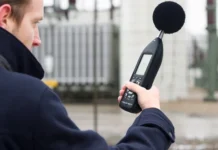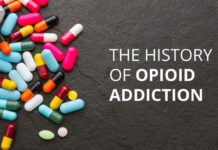Over the past few years, the number of cases of ecstasy addiction has risen in the UK. Known in medical circles as 3,4-Methylenedioxymethamphetamine or MDMA, Ecstasy is generally prescribed for treating mental disorders. However, it is often abused by people looking for a quick high due to its psychedelic properties.
MDMA triggers the release of neurotransmitters, which are chemical messengers to brain cells that have a significant impact on brain activity. As a result, an Ecstasy user experiences the release of ‘feel-good’ hormones such as serotonin and dopamine, which make a person feel good without any change in the circumstances surrounding them. Medical practitioners generally prescribe ecstasy to treat Post Traumatic Stress Disorder (PTSD) and anxiety in terminally ill patients. But unfortunately, due to its emotion-altering powers, some people have started misusing it, leading to far-reaching adverse effects. Therefore, it has become important to treat MDMA disorders in time.
What are the Negative Effects of MDMA Use, and How can They Impact Lives?
Many MDMA negative effects can throw a life off-balance. In worst cases, MDMA misuse can even prove fatal.
According to statistics published by statista.com, 67 deaths were recorded due to MDMA in 2021.
Due to the severity of MDMA misuse, it is essential to learn about MDMA-related problems and how they can impact lives. By learning about the negative impact of this drug, an MDMA abuser or their loved ones would start taking ecstasy addiction seriously and be motivated to get rid of this habit quickly:
- Worsening Physical Problems: MDMA use can lead to dehydration, overheating, high blood pressure, rapid heartbeat, and anxiety. Despite experiencing these physical effects, an abuser may still persist in abusing the drug due to their addiction. In addition, the compulsive behaviour of using MDMA repeatedly can increase the immunity of the brain towards the drug, leading to a want for higher consumption. When taken in high doses, the physical symptoms can worsen, leading to serious health problems like brain damage, seizures, loss of consciousness and panic attacks.
- A Loss of Social Prestige and Occupational Hazards: MDMA users might cut themselves off from society. Instead of seeking solace in others, they will resort to excessive drug use and exacerbate the problem. Moreover, it is harder for someone abusing ecstasy to perform their occupational tasks with conviction. So, there is a high likelihood of an MDMA user losing their job and jeopardising the family’s finances.
- A Breakdown in Relationships: Someone on MDMA might be only interested in the drug and nothing else. As MDMA addicts are less likely to give time to their spouse, boyfriend/girlfriend or children, their relationships will suffer. Excessive use of ecstasy might completely cut them off from their loved ones, and there might not be any getting back to normal if drug addiction support is not provided in time.
Treatment of MDMA Use Disorders
MDMA use disorders are treated based on the severity of the addiction. Behavioural therapy alone might work in some cases, but in more severe cases, it becomes vital to provide ecstasy detox treatment. After that, a patient must undergo psychological treatment to prevent the addiction from resurfacing.
To treat MDMA use disorders, it is best to enrol yourself or your loved one into an ecstasy rehab. There are generally two stages of treatment in MDMA rehab:
Stage 1: Ecstasy Detox
In stage 1, the body will undergo a significant change. Under the guidance of medical practitioners, the patient will follow a plan that will allow their body to get rid of the toxins. It is worth remembering that, unlike other drugs, the detox from ecstasy is generally painless. However, a patient might experience certain withdrawal symptoms such as confusion, anxiety, insomnia and, in some cases, hallucinations. But as the patient is in rehab, all the complications that manifest themselves are proactively managed by the medical staff. The hydration levels, blood pressure, temperatures etc., are monitored at all times, and the necessary treatment is provided whenever needed.
Stage 2: Behavioural and Holistic Therapies
Once all the toxins are cleared from the system, a patient will undergo behavioural and holistic therapies. Psychological help will be provided, and the patient will be made aware of crucial relapse-prevention techniques to prevent a relapse. After the holistic therapies, the patient will better understand how to live their lives without falling into the trap of ecstasy addiction again.
Summary
Ecstasy, or MDMA, is a habit-forming drug that can cause severe damage to a person’s life. Therefore, it is vital to learn about its negative effect and quit using MDMA at the earliest. But if you or your loved ones can’t get rid of this habit, enrolling in an ecstasy rehab is the best option. With the right guidance and the proper treatment, an ecstasy addict will not only quit the addiction but also learn how to stay clean of MDMA in the future.
Read Also: Four Effective Methods of Addiction Treatment



































































